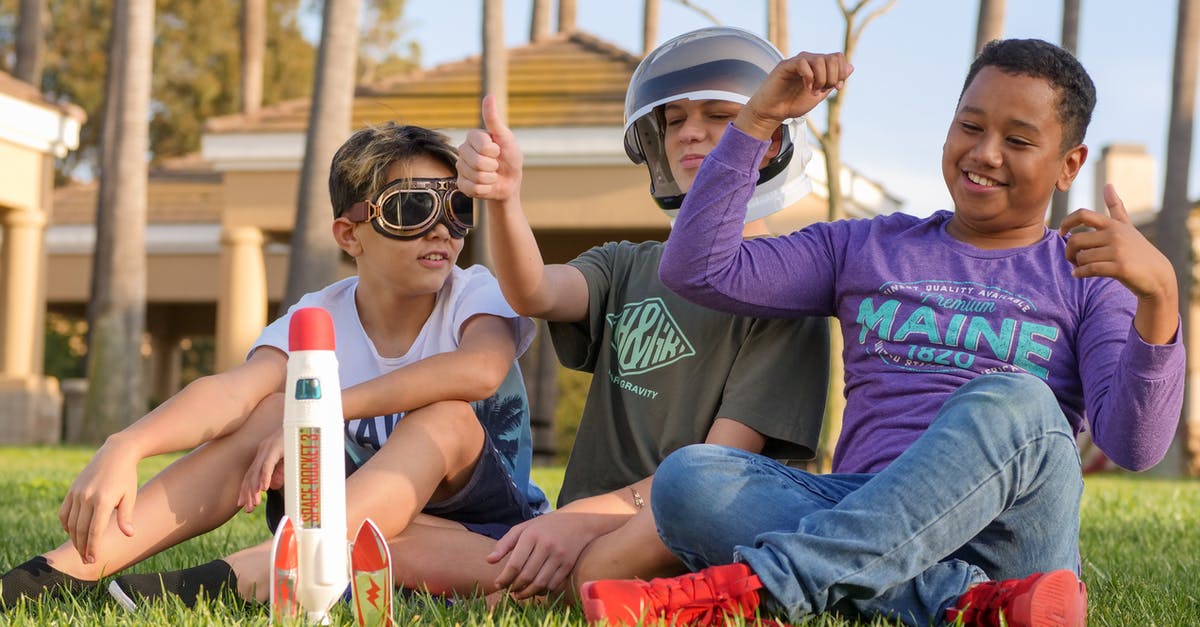Is there a way to play KSP without having studied rocket science?

A couple of years ago I bought KSP and struggled to even get through the tutorial getting the "basics".
I didn't get anywhere, got frustrated and just stopped playing the game. However this morning I felt like I should give the game another chance.
Now it's currently 5pm and after about 10 hours of playing I still didn't even get successfully through 1 of the tutorials and I'm just getting as frustrated as before.
So my question is: Is there any preknowledge expected for this game, or is there anything I can get a tutorial about how to play successfully the tutorial?
currently I'm just faced failing all some minutes in the same situation with not explained instructions I dont know how to execute and without any help from the internet.
Is it just me who has this trouble or am I simply missing some other people's help?
Best Answer
As other answers have noted, the built-in tutorials in Kerbal Space Program are not something you need to complete before starting the actual game. It's much easier to just dive right in and start playing, learning as you go.
The three game modes in KSP each have their advantages for beginners:
In Sandbox mode, you have access to everything from the start, and don't have to worry about money or science or reputation or anything else but building big rockets and seeing if they explode or not. ;-) The main drawback of Sandbox mode is that the sheer number of parts and features available may be overwhelming. Pick this mode if you just like to stick a bunch of crazy stuff together and see if it'll fly. :-)
Science mode is kind of a compromise between Sandbox and Career modes: you still don't need to worry about money or reputation, but you only start with a few simple rocket parts, and have to work your way up the tech tree to acquire more options. I'd suggest this as the most beginner friendly mode in general, although the other modes have their advantages too.
Finally, in Career mode, you've got a limited amount of funds to play with, and have to worry about things like blowing up too many pilots and ruining your reputation. The nice thing about Career mode for beginners is that you get contracts, which give you specific goals to meet and can sort of act as an in-game quasi-tutorial. If that's something you think you'd like, or if you just feel the Sandbox and Science modes feel too aimless, go ahead and start a Career mode game. You can always adjust the difficulty, or just restart the game if your first space program crashes and burns.
Also, there are several third-party tutorials for KSP that you might find useful. Since it was requested in the comments that these should be mentioned in an answer, here's a brief, non-exhaustive list:
- Kerbal Space Program - Career Mode Guide For Beginners by Scott Manley (for KSP v1.0)
- An older tutorial series, also by Scott Manley; this is for KSP v0.23 "Career mode", which is more or less the same as Science mode in KSP v1.0
- List of tutorials on the KSP wiki
Note that, due to the rapid development of KSP, some older tutorials may be somewhat out of date. In particular, what's now called Science mode used to be called Career mode, before the new Career mode was introduced in KSP v0.24, so the naming of some older tutorials may be a bit confusing from a modern perspective.
Also, I've made this a Community Wiki answer so that it's easier to edit; feel free to improve and update the third-party tutorials list above.
Pictures about "Is there a way to play KSP without having studied rocket science?"



Is Kerbal Space Program rocket science?
Kerbal Space Program isn't an educational game \u2013 this is a straight up video game. Which is exactly what you need to get kids interested. The cute Kerbals want to go to space, but in order to do that, they need to obey the laws of physics.Is KSP an educational game?
NASA reached out to Squad, the company that develops KSP, in 2013 to implement its Asteroid Redirect Mission into the game.Does NASA use KSP?
The orbit simulation is quite accurate, including how to change inclination, raise/lower orbits, leave a planet, and approach a new planet. The staging is somewhat accurate. The use of fuel, acceleration, mass, etc. are pretty accurate.8 STUPID MISTAKES everybody makes in Kerbal Space Program
More answers regarding is there a way to play KSP without having studied rocket science?
Answer 2
The first versions of KSP were hard, because there was no help at all. Figuring out trajectories indeed was a major pain, and I can imagine why you bailed out.
The current version is much more accessible, in sandbox mode. That's because you get all the components. Some of them are rather critical to get to other planets and are entirely, totally overkill just to get in orbit. In career mode, however, you'll only get a few components to start with. That's hard in a different way: there's only so much you can do, and it will be quite a while before you can get to Mun.
So, if you get frustrated, ignore the tutorial and grab some big, BIG rocket components. Use a big orange Jumobo tank, a big Mainsail engine, a sturdy Mk1-2 command pod, a decoupler between tank and engine, and an XL parachute. I don't think you need fins.
There are two core fundamentals in space flight: the most efficient acceleration is forward and backwards, which are the lime indicators on the navball. Secondly, your orbit has a high point (apoapsis) and low point(periapsis). To increase the height of one, accelerate in the opposite point.
Finally, the quick tip to get to the Mun is to get in a low circular orbit, starting eastward from the base, and wait for the Mun to rise above the horizon. Then accelerate until your apoapsis touches Mun orbit.
Personally, I use MechJeb. This is a smart calculator which gives many important figures. For instance, it can show orbital information. So that Munshot becomes a lot easier: you can see the predicted apoapsis and you just accelerate until it hits 11400 km. (Don't try to be too precise, you'll just hit the Mun if you go for 11400 km exactly.)
Answer 3
The other answers, especially "Community Wiki" answer above with the lists of tutorials is great.
My recommendation is (like others) to skip the tutorials and do your first play-through in science mode. I'd set your first goal to be making orbit.
One other thing to add: I've seen a lot of posts above recommending MechJeb (MJ). Instead, I'd recommend Kerbal Engineer (KER). It give the same data, and doesn't do anything more. From what I understand, MJ gives the data, and then has a bunch of autopilot features, which can be confusing if you don't understand what they're doing.
Watch some tutorials, and if you're having trouble making orbit after several attempts, come on back and we'll try to help step by step as best we can.
Best of luck and clear skies.
Sources: Stack Exchange - This article follows the attribution requirements of Stack Exchange and is licensed under CC BY-SA 3.0.
Images: Blue Bird, Helena Lopes, Maria Varshavskaya, Kindel Media
